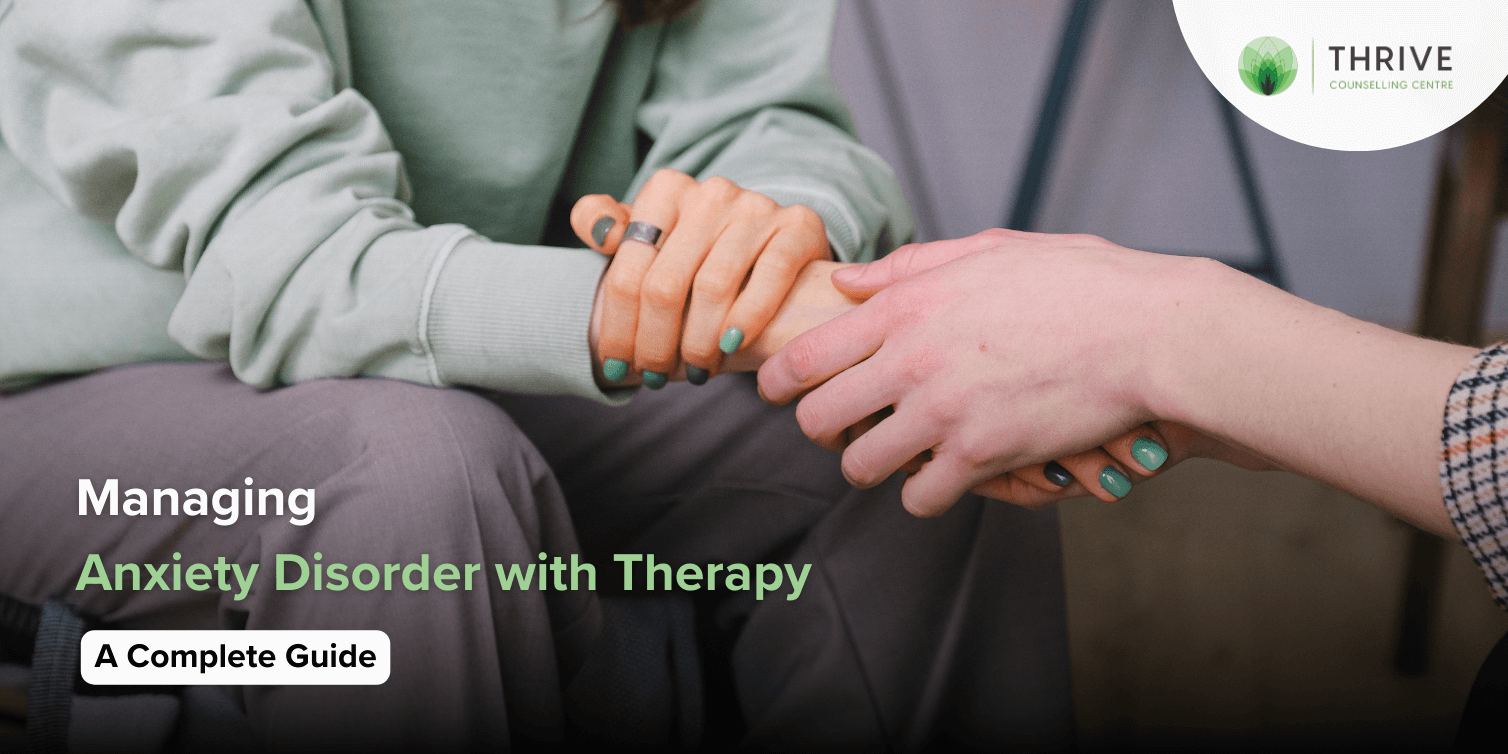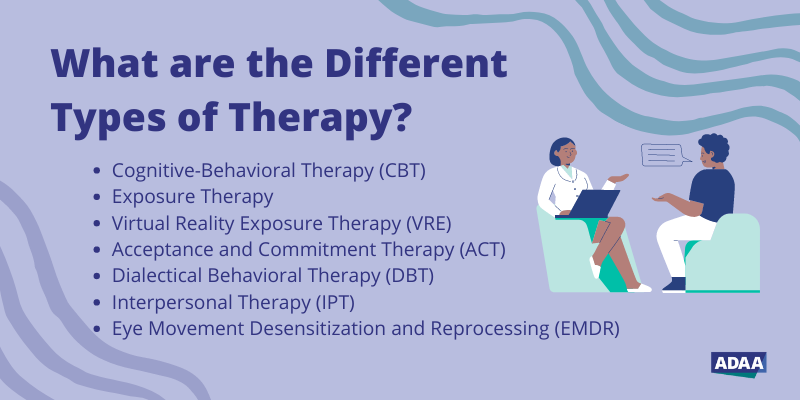Discovering Different Methods in Coaching for Anxiety Condition for Lasting Adjustment
When taking on anxiety conditions, it's necessary to check out a variety of therapy methods. Each technique uses unique insights and tools to help you manage your signs efficiently. You may find that incorporating methods can yield the most effective outcomes. Nonetheless, understanding the nuances of these approaches is crucial to promoting long lasting adjustment. Suppose the ideal mix could release a new level of emotional health for you?
Recognizing Anxiousness Disorders: A Quick Introduction
Stress and anxiety conditions, which affect numerous individuals worldwide, can substantially impact day-to-day life. You may experience overwhelming feelings of fear or worry that seem uncontrollable. These sensations can result in physical signs like a racing heart, sweating, and even lightheadedness. Usual kinds of anxiousness conditions consist of generalised anxiety problem, panic condition, and social stress and anxiety problem. Each has one-of-a-kind signs, but they all share a propensity to interrupt your regular and relationships.Understanding the origin creates of your stress and anxiety is important. It could originate from genetics, brain chemistry, or life experiences. Identifying your triggers can help you manage your responses much better. It is necessary to keep in mind that you're not the only one in this struggle. Many individuals deal with comparable challenges, and seeking help is a strong action towards feeling better. By finding out about anxiousness conditions, you're currently on the path to understanding and managing your condition extra properly.
Cognitive-Behavioral Therapy: Challenging Negative Thought Patterns

Determining Unfavorable Idea Triggers
When you encounter minutes of distress, identifying the particular triggers behind your adverse ideas can be important in managing anxiousness. Beginning by focusing on circumstances that prompt feelings of worry or concern. Is it a congested space, a forthcoming due date, or a discussion with certain individuals? Jot down these circumstances in a journal. This will certainly aid you identify patterns in your thinking. Notification physical feelings that accompany your adverse ideas, like a racing heart or rigidity in your upper body. By identifying these triggers, you acquire insight right into what's fueling your anxiousness. Comprehending these connections is the very first step in challenging those ideas and eventually restoring control over your psychological actions.

Changing Thoughts With Positives
Challenging negative idea patterns is a crucial action in changing your attitude and lowering anxiousness. You might often find yourself trapped in cycles of insecurity or devastating thinking. Rather than letting these ideas determine your sensations, practice replacing them with realistic options or favorable affirmations. As an example, when you assume, "I can not handle this," move it to, "I can handle obstacles one step at a time (Counseling services for anxiety)." This easy modification can considerably impact your emotional state. Frequently recognizing and responding to these negative thoughts helps create a healthier internal discussion. Bear in mind, it requires time and initiative, yet regularly practicing this technique can bring about enduring adjustment, equipping you to face anxiety with renewed confidence and durability
Structure Coping Strategies With Each Other
Replacing adverse ideas is only the beginning of handling anxiousness efficiently. To develop enduring modification, you need to develop coping strategies that equip you. Cognitive-Behavioral Therapy (CBT) aids you determine and test those unhelpful thought patterns. Together, you and your therapist can discover how these thoughts impact your sensations and behaviors.Start by developing useful methods, like journaling or mindfulness exercises, that enable you to face stress and anxiety head-on. When you encounter your fears slowly, you'll discover to respond differently.

Mindfulness and Acceptance-Based Approaches: Cultivating Present-Moment Recognition
As you browse the intricacies of anxiety, incorporating mindfulness and acceptance-based approaches can considerably improve your capacity to grow present-moment awareness. By concentrating on the present moment, you'll find that you can observe your thoughts and sensations without judgment. This practice helps you acknowledge your anxiousness without really feeling bewildered by it.Engaging in mindfulness workouts, such as deep breathing, body scans, or directed meditations, allows you to ground yourself in your present experience. Acceptance-based approaches encourage you to embrace your emotions instead of combat versus them. They shed their power over you.Incorporating these methods into your day-to-day regimen can change how you react to anxiousness when you approve your feelings. You'll establish strength and find out to navigate demanding situations with greater ease. Inevitably, growing present-moment understanding lays the foundation for lasting modification, encouraging you to lead a much more meeting life.
Exposure Therapy: Confronting Concerns Progressively
Exposure treatment assists you face your anxieties in a gradual way, making it much less frustrating. You'll learn strategies to encounter anxiety-provoking situations detailed, while additionally building coping methods to handle your responses. This approach encourages you to take control and minimize stress and anxiety over time.
Progressive Direct Exposure Strategies
When facing anxiousness, progressively challenging your worries can be an effective method to reclaim control. This technique, recognized as progressive direct exposure, includes gradually subjecting on your own to the situations or items that cause your anxiety. Beginning with much less daunting circumstances and progressively work your method approximately more challenging ones. For instance, if you hesitate of public speaking, you may begin by talking before a mirror, then advance to sharing thoughts with a good friend, and at some point address a small group. Each action helps desensitize you to the fear, building your confidence with time. Bear in mind, it's important to speed yourself and celebrate small triumphes as you move with this procedure, reinforcing your ability to handle stress and anxiety properly.
Structure Coping Techniques
Structure efficient coping techniques is crucial for taking care of stress and anxiety, particularly as you face your concerns progressively. One effective method is direct exposure therapy, where you begin by facing your worries in a regulated fashion. Begin with less daunting circumstances and slowly work your way as much as even more difficult circumstances. This progressive direct exposure aids desensitize you to stress and anxiety sets off, making them much less overwhelming.Incorporate relaxation methods, such as deep breathing or mindfulness, to soothe your mind throughout direct exposure. Track your progress, celebrating tiny victories in the process to boost your confidence. Keep in mind, it's okay to take your time; the objective isn't perfection but steady renovation. By constructing these techniques, you'll equip on your own to browse stress and anxiety and accept life a lot more fully.
Psychodynamic Treatment: Uncovering Source of Anxiousness
Psychodynamic therapy explores the subconscious mind, exposing the origin of your stress and anxiety - Counseling services for anxiety. By analyzing your ideas, sensations, and past experiences, this technique helps you uncover underlying conflicts and unresolved concerns that might add to your present stress and anxiety. You'll collaborate with a specialist to explore childhood experiences, connections, and emotional patterns that form your actions today.As you obtain understanding into these much deeper layers of your psyche, you'll begin to recognize how past occasions affect your existing actions. This understanding can cause catharsis, permitting you to refine feelings you could have suppressed.Through the restorative partnership, you can additionally determine protection systems that may have developed over time, using a more clear path to transform. Eventually, psychodynamic therapy outfits you with the devices to resolve your stress and anxiety at its core, promoting enduring change in your psychological well-being
Integrative and Alternative Strategies: Combining Strategies for Greater Efficacy
Incorporating various restorative strategies can improve your trip toward taking care of anxiety better. By combining elements from cognitive-behavioral therapy, mindfulness techniques, and all natural approaches, you can produce an individualized strategy that addresses your one-of-a-kind demands. You could use cognitive-behavioral techniques to test negative idea patterns while incorporating mindfulness workouts to ground yourself in the present moment.Additionally, exploring alternative techniques such as yoga or reflection can advertise relaxation and reduce anxiousness signs and symptoms. This mix permits you to create better self-awareness and resilience.Experimenting with these varied methods can assist you discover what reverberates most with you. Bear in mind, it has to do with finding a harmony that works, as opposed to staying with a solitary technique. This integrative strategy not only offers Web Site prompt relief but additionally promotes long-lasting abilities for taking care of anxiousness, equipping you to recover control over your life.
The Role of Assistance Systems: Building Strength Via Link
While it could seem that handling anxiety is a singular trip, having a strong assistance system can play a necessary function in your important site durability. Bordering on your own with understanding friends, household, or assistance teams produces a safe room where you can openly share your sensations and experiences. When you get in touch with others, you advise on your own that you're not the only one in this struggle.These partnerships offer encouragement and can offer sensible coping methods that have actually helped others. It's additionally a possibility to acquire viewpoint; friends can help you see scenarios differently, minimizing sensations of isolation.Moreover, emotional assistance cultivates a sense of belonging, which can significantly reduce anxiousness signs. By leaning on your support group, you can construct strength and take on obstacles a lot more successfully. Bear in mind, getting to out for aid is an indicator of toughness, and it can make all the distinction in your trip toward handling stress and anxiety.
Often Asked Inquiries
What Are the Common Signs And Symptoms of Anxiety Conditions?
You may experience restlessness, fatigue, difficulty focusing, irritation, muscle mass stress, and sleep disturbances. Physical signs can include quick heartbeat, sweating, and trembling. Recognizing these signs early can help you seek ideal support and treatment.

How Much Time Does Therapy Normally Last for Anxiousness Conditions?
Therapy for anxiousness problems usually lasts anywhere from a couple of weeks to a number of months. It truly depends upon your individual requirements, progress, and the techniques your therapist utilizes to assist you manage your stress and anxiety properly.
Can Medicine Be Utilized Alongside Therapy for Anxiousness?
Yes, medication can certainly be used along with therapy for stress and anxiety. Integrating both strategies typically boosts treatment performance, helping you handle signs while checking out underlying problems through counseling. Always consult your healthcare company for tailored suggestions.
Are There Self-Help Strategies for Taking Care Of Stress And Anxiety?
Yes, there are a number of self-help strategies for taking care of anxiety. You can practice mindfulness, participate in regular exercise, preserve a well balanced diet regimen, develop a routine, and use deep breathing methods to help decrease anxiousness symptoms properly.
Exactly how Do I Know if I Required Professional Assistance for Stress And Anxiety?
You should think about seeking specialist aid for anxiety if it interrupts day-to-day live, causes considerable distress, or if self-help techniques aren't functioning. Count on your instincts; getting to out can bring about much better coping skills and support. Common kinds of anxiousness disorders include go to my site generalized anxiousness disorder, panic condition, and social stress and anxiety problem. When you encounter moments of distress, recognizing the specific triggers behind your unfavorable thoughts can be vital in taking care of anxiety. Replacing unfavorable ideas is only the start of taking care of anxiousness successfully. By examining your thoughts, sensations, and past experiences, this technique helps you discover underlying conflicts and unresolved concerns that may add to your current stress and anxiety. It's likewise a chance to get perspective; friends can help you see situations in different ways, reducing feelings of isolation (Counseling services for anxiety).Moreover, emotional support cultivates a feeling of belonging, which can considerably reduce anxiety signs